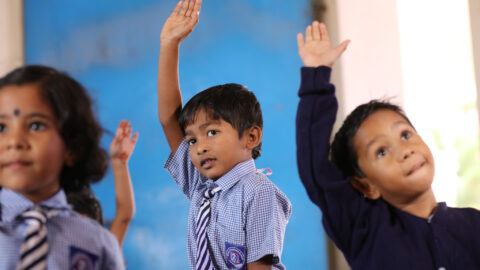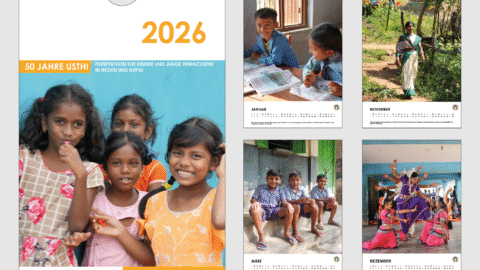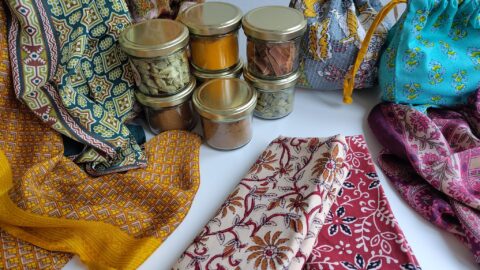Being able to stand on your own two feet financially is one of the most important steps towards self-determination. With our work, we not only aim to enable the self-determination of project participants, but also to promote the long-term independence of Usthi projects.
In the context of the Professional Skills Training Project in Hyderabad, sewing machines create the potential for financial independence at various levels, both for the project itself and for the project participants.
Integrated into the professional skills training centre in Hyderabad is a social business venture in the form of a textile processing centre run by our local partner organisation. The “Garment Factory” offers around 30 local jobs under fair conditions. The income from the small textile company flows back into the vocational training centre and thus helps to finance part of the project. This sustainable economic cycle ensures that the vocational training project is embedded locally not only on a social but also on an economic level.
To further promote local value creation, Usthi invested in special sewing machines last year to open up a new market segment through the textile processing centre. The new machines are the response to an existing demand: they enable the processing of knitted textiles, thereby allowing the center to take on more orders. This investment enables the textile processing centre to diversify its income opportunities and increase revenues to support the local financing of the Professional Skills Training Project.
During their training, participants of the project develop the skills they need to enter the labour market. While the majority of graduates find employment in the formal labour market after completing their vocational training, some go on to start their own businesses. To make this step easier and to support the budding entrepreneurs along the way, Usthi finances a “Micro Business Start-up Kit” in the form of a sewing machine for 80 graduates of the vocational training per year since the beginning of the current project cycle. With this equipment, the graduates are able to take on customers independently and set up a small business. The first start-up kits have already been distributed and, together with our partner organisation, we look forward to seeing how the small businesses will develop.



